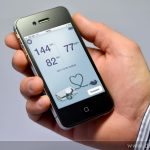 The growing value of data in healthcare is a topic I’ve touched on increasingly in the past few months. A good example of the possibilities comes via a recent partnership between digital startup Tigerspike and the National Institute for Health Research Clinical Research Network (NIHR CRN).
The growing value of data in healthcare is a topic I’ve touched on increasingly in the past few months. A good example of the possibilities comes via a recent partnership between digital startup Tigerspike and the National Institute for Health Research Clinical Research Network (NIHR CRN).
The project sees Tigerspike develop an app that allows medical researchers to develop robust and meaningful data for their studies. The app hopes to make both the recruitment of subjects easier, whilst also easing the way researchers can conduct their work.
The app is built upon the Apple ResearchKit framework that was designed specifically to help scientists gather data via iPhone apps.
First steps
The NIHR CRN team used themselves as the early guinea pigs by setting themselves a challenge to walk 10,000 steps over a two-week period, with the app doing the measuring.
The data was then sent to the Leeds Institute for Data Analytics, at the University of Leeds, where it was analyzed.
Of particular interest was the mechanism by which the app allowed people to participate in the research. The initial trial suggests that e-consent is a viable means of attracting participants, not least because the time taken to complete is significantly less than traditional methods. Not only was it quicker, but respondents also revealed that they found the app based approach much more straightforward.
Participants could simply download the application from a link and there was no requirement for specialist equipment or for participants to track information on paper – everything was collected on the mobile device.
“Medics and researchers around the world are already using digital technologies to revolutionise the way we think about health,” the team say. “Many legacy healthcare systems are increasingly proving to be inefficient as they are simply too large and fragmented to drive rapid digital transformation. Technology is enabling data collection to be more efficient than ever before, for both researchers and participants alike. Through the use of mobile applications, medical researchers will have the power to recruit more participants much quicker, providing more precise data and more accurate insights than ever before. Ultimately, this will provide unprecedented opportunities for patients to gain earlier access to better and new treatments, and we’re looking forward to being a part of this revolution as we look to continue this initiative with the NIHR CRN”.
We’re undoubtedly still at an early stage in the use of mobile apps in the medical research process, but the possibilities are clear for all to see. It will be fascinating to track where the industry goes next.